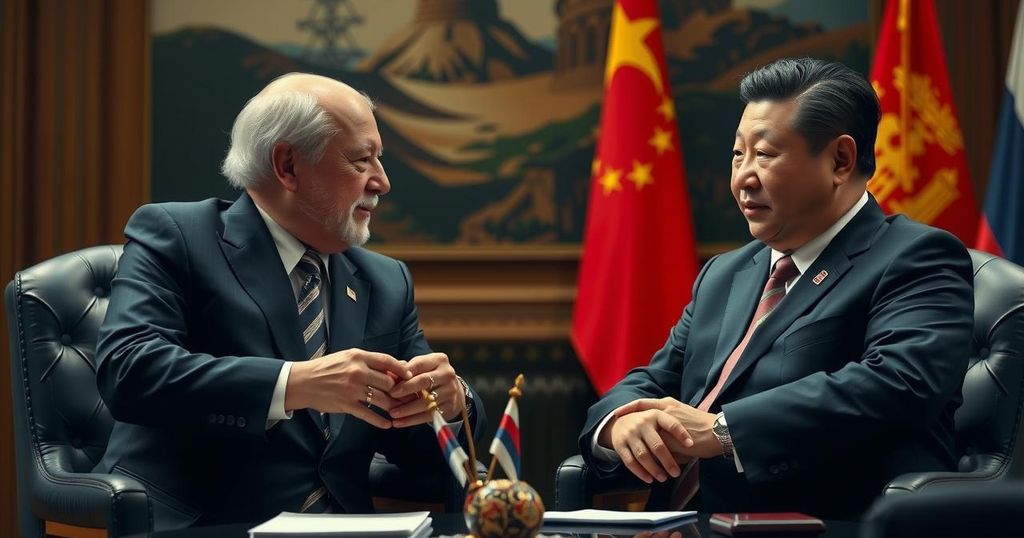Biden to Address North Korea’s Support for Russia in Final Meeting with Xi Jinping
President Biden is set to have a crucial final meeting with Chinese President Xi Jinping, focusing on urging China to counteract North Korea’s support for Russia. This engagement occurs amid growing concerns over North Korea’s military activities and increasing tensions in U.S.-China relations as a new U.S. administration approaches. The talks will also address broader issues such as human rights and international security.
During his last meeting with Chinese President Xi Jinping at the Asia-Pacific Economic Cooperation summit in Lima, Peru, President Joe Biden is anticipated to emphasize the need for China’s intervention in reducing North Korea’s alliance with Russia. As Biden prepares to leave office, he seeks to leverage Xi’s influence to mitigate the risks posed by North Korea’s military support for Russia amid its ongoing conflict in Ukraine. Amid discussions about security, human rights, and technology, Biden and his counterparts from South Korea and Japan expressed concerns over North Korea’s role in escalating regional tensions. While Biden and Xi’s meeting is set against a backdrop of growing U.S.-China tensions, it carries significant weight as both leaders have navigated a complex relationship focusing on mutual interests and threats. With the transition to a Republican administration led by President-elect Donald Trump imminent, Biden’s discussions could set the tone for future U.S.-China relations. Additionally, concerns regarding North Korea’s increased military actions, including missile tests and troop deployments to support Russia, were urgent topics during recent trilateral talks, which saw shared criticism of Kim Jong Un’s decisions. Furthermore, Biden’s administration has expressed dissatisfaction with China’s lack of tangible action in curbing North Korea’s destabilizing behavior, despite Beijing being North Korea’s primary trading partner. This meeting represents a crossroad for U.S. foreign policy in Asia and a crucial moment in Biden’s long political career, particularly in regards to the pivotal relationship with Xi. With both leaders having personal relationships formed during their vice-presidential years, this dialogue not only holds diplomatic significance but serves as a potential precursor to how the incoming Trump administration may approach the multifaceted U.S.-China engagement going forward.
The relationship between the United States and China has grown increasingly complex and fraught with challenges, particularly in light of North Korea’s provocative actions and China’s ambiguous stance on issues regarding Russia’s aggression in Ukraine. As North Korea continues to support Russia militarily, the U.S. seeks to press China to utilize its substantial influence over Pyongyang to mitigate further escalation. The impending transition to the Republican administration under Donald Trump adds a layer of uncertainty regarding future diplomatic efforts and military dynamics in the region.
In conclusion, President Biden’s final talks with President Xi Jinping center on the pressing need for China to use its influence to dissuade North Korea from deepening its military ties with Russia. This meeting underscores the intricate balance between cooperation and competition that characterizes U.S.-China relations and highlights the urgent need for collective action in promoting stability in East Asia before the leadership transition to the Trump administration.
Original Source: apnews.com




Post Comment